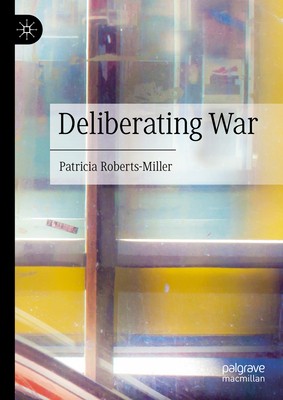
- We will send in 10–14 business days.
- Author: Patricia Roberts-Miller
- Publisher: Palgrave Macmillan
- ISBN-10: 303160671X
- ISBN-13: 9783031606717
- Format: 14.8 x 21 x 1.6 cm, hardcover
- Language: English
- SAVE -10% with code: EXTRA
Reviews
Description
This book argues that treating politics as war derails essential democratic processes, including deliberation and policy argumentation, in complicated ways. "Politics is war" is not always just a figure of speech, but often a sincere expression of how people see disagreement--they mean it literally--and they use it to evade the responsibilities of rhetoric. This book takes the metaphor seriously. Using a series of case studies ranging from the 432 BCE "Debate at Sparta" to Bill O'Reilly's recent invention of a "War on Christmas," Deliberating War illustrates pathologies of deliberation that arise when a community understands itself to be at political war. This book identifies recurrent rhetorical strategies that constrain or even effectively prohibit deliberation, such as deflecting, reframing, threat inflation, appealing to paired terms, claiming moral license, radicalizing a base. In short, what seems to be an effective solution to an immediate rhetorical problem--using hyperbole and demagoguery to persuade people to adopt a specific leader or policy--is a trap that prevents democratic practices of compromise, deliberation, fairness, reciprocity. Unhappily, threat inflation--even when well-intentioned--At some point, hyperbolic rhetoric becomes threat inflation, and then that inflated threat becomes the premise of policies, both foreign and domestic. And then agreeing as to the obvious existential threat posed by the Other and uniting behind the obvious policy solution is a necessary sign of being on the side of Good. Once communities become persuaded that they are in an apocalyptic battle between Good and Evil, politics as war can quickly become real war--often with far-reaching and catastrophic consequences.
EXTRA 10 % discount with code: EXTRA
The promotion ends in 17d.02:00:13
The discount code is valid when purchasing from 10 €. Discounts do not stack.
- Author: Patricia Roberts-Miller
- Publisher: Palgrave Macmillan
- ISBN-10: 303160671X
- ISBN-13: 9783031606717
- Format: 14.8 x 21 x 1.6 cm, hardcover
- Language: English English
This book argues that treating politics as war derails essential democratic processes, including deliberation and policy argumentation, in complicated ways. "Politics is war" is not always just a figure of speech, but often a sincere expression of how people see disagreement--they mean it literally--and they use it to evade the responsibilities of rhetoric. This book takes the metaphor seriously. Using a series of case studies ranging from the 432 BCE "Debate at Sparta" to Bill O'Reilly's recent invention of a "War on Christmas," Deliberating War illustrates pathologies of deliberation that arise when a community understands itself to be at political war. This book identifies recurrent rhetorical strategies that constrain or even effectively prohibit deliberation, such as deflecting, reframing, threat inflation, appealing to paired terms, claiming moral license, radicalizing a base. In short, what seems to be an effective solution to an immediate rhetorical problem--using hyperbole and demagoguery to persuade people to adopt a specific leader or policy--is a trap that prevents democratic practices of compromise, deliberation, fairness, reciprocity. Unhappily, threat inflation--even when well-intentioned--At some point, hyperbolic rhetoric becomes threat inflation, and then that inflated threat becomes the premise of policies, both foreign and domestic. And then agreeing as to the obvious existential threat posed by the Other and uniting behind the obvious policy solution is a necessary sign of being on the side of Good. Once communities become persuaded that they are in an apocalyptic battle between Good and Evil, politics as war can quickly become real war--often with far-reaching and catastrophic consequences.


Reviews